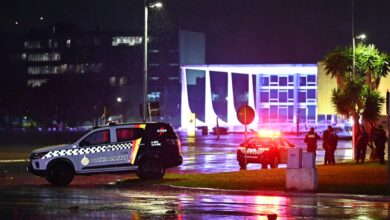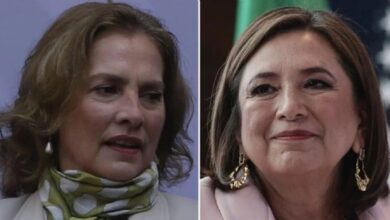The grandson of late iconic South African leader Nelson Mandela has called on the Palestinians to follow the footsteps of South Africans while struggling against the “apartheid” state of Israel.
In an exclusive interview with Anadolu Agency, Mandla Mandela said South Africans lived for decades under the apartheid regime in their country.
“However, we were able to defeat it,” he said, attributing the victory to what he described as “the internal unity against the apartheid regime.”
“We had to unite our ranks to bring all the oppressed people of South Africa across national boundaries and gender differences,” Mandela said.
“We were able to speak in one voice,” he said. “Oppression has helped us to be effective in our strategies.”
South Africa established diplomatic relations with Palestine in 1995 — a year after the end of white-minority rule.
Ever since, Pretoria has remained highly critical of Israel’s continued mistreatment of the Palestinians, including its longstanding policy of building illegal Jewish settlements on Arab land in the occupied West Bank.
Active ambassadors
Mandela said South Africans who lived overseas during the apartheid regime were “active ambassadors for our struggle for liberation”.
“They were mobilized and working hard to make the world aware of the brutality and atrocities committed against the defenseless people of South Africa,” he said.
He said such efforts had helped to draw global support and trigger solidarity campaigns with the cause of the South Africans.
According to Mandela, one of these effective campaigns was the Release Mandela Campaign, which aimed to free all political prisoners.
He also cited the Anti-Apartheid Movement, which has led to the launch of pro-South Africa campaigns throughout the world.
“It has led to a boycott of products coming from South Africa at the time as well as boycotting any sports activity in the country,” he said.
This movement, Mandela said, was also able to “lobby governments to impose sanctions on South Africa.”
“All these initiatives led to the collapse of the apartheid regime in South Africa,” he said.
Model for Palestinians
Mandela believes that the South African struggle against the white-minority rule could be a model for the Palestinians while resisting the decades-long Israeli occupation.
“Today, we are witnessing the ugly face of the apartheid regime in Israel,” he said.
“We say it to the world that as we were able to undermine the apartheid regime in South Africa, we will be able to do this with the apartheid regime in Israel.”
Mandela went on to appeal to all political groups in Palestine to join hands and unite against the Israeli occupation.
“We are calling for unity among the Palestinians,” he said. “They need to stop looking at each other through partisan lines, but to come together.”
He called on the Palestinians in the diaspora to play an active role in exposing the atrocities committed against the Palestinians back home.
“The six million of Palestinians living in exile can become effective ambassadors with a view to lobbying all people across the world in support of their cause,” he believes.
He also called on the Palestinians to take advantage of UN resolutions criminalizing the apartheid.
“Apartheid is a global crime and it is our role to expose its ugly face, particularly in Israel, by taking it to all sorts of [international] courts,” he said.
Mandela directed his appeal to his own government by saying that South Africa should utilize its position in the BRICS to “ensure that we are able to have BRICS countries alignment to the Palestinian cause.”
In 2010, South Africa joined the BRICS – a bloc of emerging economies — which also includes Russia, India, China, and Brazil.
He also called for utilizing South Africa’s seat in the UN Security Council to become “the voice of the voiceless and therefore to speak about the self-determination of Palestine.”
[adrotate banner=”71″]
 Apparently a suicide attack in Brasilia
Apparently a suicide attack in Brasilia Earthquake after hurricane in Cuba
Earthquake after hurricane in Cuba Haiti’s prime minister ousted after six months
Haiti’s prime minister ousted after six months This is how Xóchitl Gálvez responded to Beatriz Gutiérrez Müller’s message
This is how Xóchitl Gálvez responded to Beatriz Gutiérrez Müller’s message